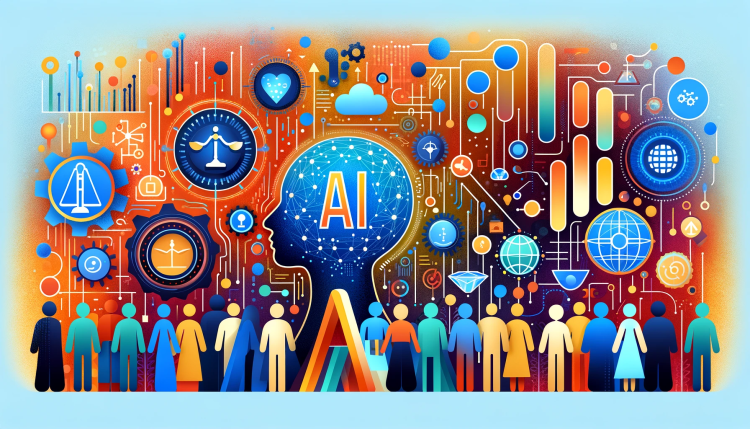Last week, OpenAI announced the formation of their new “Collective Alignment” team, dedicated to prototyping processes that incorporate public input to guide AI model behavior. This initiative aims to achieve democratic AI governance, building upon the work of the recipients of OpenAI’s Democratic Inputs to AI grant program.
Aiming for Democratic AI Governance
The concept of OpenAI, a company known for its mission of creating safe AGI for the benefit of humanity, venturing into the realm of democratic decision-making may seem ambitious. With concerns about the integrity of democratic processes and the role of AI in influencing elections, the question arises: How can subjective public opinion be applied to the rules governing AI systems?
However, the existence of the Collective Alignment team, consisting of dedicated individuals such as Tyna Eloundou, an OpenAI researcher focused on the societal impacts of technology, and Teddy Lee, a product manager with experience in responsible deployment of AI models, highlights OpenAI’s commitment to this important goal.
The Challenges of Democratically Aligned AI Systems
When asked about the challenges they face, Eloundou acknowledged that the pursuit of democratic processes in AI decision-making could be seen as a “moonshot.” Democracy itself is complex and constantly evolving, requiring continuous adaptation and engagement from society. The parameters and rules of democracy are determined by people, and it is people who must decide if these rules are meaningful and require revisions.
Lee emphasized that integrating democracy into AI systems presents numerous challenges and a wide range of potential directions. OpenAI’s grant program was created to explore the work of other teams already active in this space, identifying innovative approaches to integrating democracy into AI governance. While the task may be daunting, he also emphasized the abundant opportunities and low-hanging fruit that can help address blind spots.
OpenAI’s Democratic Inputs to AI grant program awarded $100,000 to 10 diverse teams out of nearly 1000 applicants. These teams designed, built, and tested ideas that leverage democratic methods to determine the rules governing AI systems. Their approaches varied, with some focusing on video deliberation interfaces, crowdsourced audits of AI models, and mathematical formulations of representation guarantees.
Despite immediate roadblocks like the volatility of public opinion, difficulties in reaching diverse participants, and discrepancies among polarized groups, the Collective Alignment team remains undeterred.
The Path Forward
In addition to advisors on the grant program, the Collective Alignment team has sought guidance from researchers specializing in citizens assemblies, a modern corollary to their goal of involving a representative group of people in decision-making. While challenges persist and the team acknowledges the infinite nature of this endeavor, their dedication and commitment remain unwavering.
“We won’t solve it,” Lee admits, “but as long as people are involved and interact with these models in new ways, we’ll have to keep working at it.”
OpenAI’s efforts towards democratic AI governance should be commended, especially in a time where the integrity of democratic processes is being questioned. Regardless of any cynical interpretation, it is a step towards a more inclusive and accountable future for AI systems.










